Agriculture

Manipur moots crop compensation package for violence-affected farmers
An independent survey conducted by Loumee Shinmee Apunba Lup, a farmers' body, claimed that a total of around 9,719 hectares of paddy fields in the valley could face crop failure as farmers are afraid of going into the fields because of sporadic firing from the lower foothills.

Punjab Food Secy on procurement, says 'We expect target of 182 lakh tonnes of Paddy this year'
Speaking about the Paddy procurement, Food, Civil Supplies and Consumer Affairs Secretary, Punjab, Gurkirat Kirpal Singh said that 182 lakh tonnes of paddy are expected to be coming this year. “We call upon the farmers to come to the markets from today. Already in 16 districts, production has started... The payment will go into farmers' accounts from October 3. The government has already received Rs 37,265 crores to make payments to the farmers...We expect 182 lakh tonnes of paddy coming in this year... We have made arrangements to save crops from rain...,” said Gurkirat Kirpal Singh.

A look into India's tur problem: Why is this dal always on the boil?
India, the largest producer of pulses, is facing a shortage of tur dal, leading to increased imports. Issues such as hoarding and cartelisation in the importation contribute to price increases. The average market price of tur dal has risen by Rs 10 per kg, reaching Rs 149 per kg. To prevent hoarding, the government has reduced the stock limit for tur dal held by wholesalers and large retail chains. The Department of Consumer Affairs is monitoring stock levels, and the government has taken measures to boost domestic availability and contain price rise.
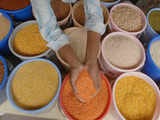
Pulses supplies to remain constrained till Diwali
There is likely to be a shortage of 1 million tonnes of tur till the harvest of new crops begins in December/January, while the production of kharif moong is expected to be lower by 12%. The quality of urad crop under harvest has been damaged due to rainfall in September.
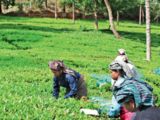
Small tea growers seek cooperation and support from organized sectors and government
The National Small Tea Grower's Conference 2023 highlighted the significance of small tea growers (STGs) in the Indian tea industry and the challenges they face. They called for increased cooperation and support from organized sectors and government agencies to enhance their agricultural practices.

MSP Committee may suggest agri-commodity trading should not take place below MSP
The Minimum Support Price (MSP) committee is expected to recommend that futures trading for agri-commodities should not be allowed below the MSP. The committee believes this will encourage more farmers to participate in trading platforms. Additionally, the committee may suggest smaller lot sizes for trading contracts. The committee also wants exchanges to collaborate with Primary Agricultural Credit Societies (PACS) to hedge trading risks and make it easier for farmers to benefit from trading.

Rice ban export is regulation rather than restriction for food security: India to WTO's agri committee meet
India has defended its export ban on rice, stating that it is a regulation rather than a restriction and is necessary for the food security of its 1.4 billion people. India reiterated its commitment to ensuring food security in importing countries through exemptions granted upon request. The government has allowed exports of non-basmati rice to Bhutan, UAE, Mauritius, and Singapore.
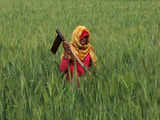
Crop insurance scheme PMFBY to touch an all time high this fiscal
Enrollment in India's crop insurance scheme, Pradhan Mantri Fasal Bima Yojana (PMFBY), is expected to increase by 23% this fiscal year, reaching a record high of 37.5-40.0 million farmers. The scheme aims to provide financial support to stabilize farmers' incomes, particularly during periods of patchy rainfall caused by phenomena like El Nino. Despite delayed monsoon and below-normal rains in August, September has seen normal rainfall.

Rainfall distribution in most places normal this year: Dr DS Pai, IMD
Going forward, there can be more areas of northwest India where there should be withdrawal of monsoon by around the 15th of October. Around that period, the monsoon should withdraw from the region. But occasional rainfall activity could be there.

Higher educational institutes create ‘Agri-Consortium’
Indian higher educational institutes (HEIs) have joined together to form an 'Agri-Consortium', led by IIM Kashipur. The consortium aims to provide a platform for academics, researchers, students, and industry professionals to discuss trends and advancements in agriculture. The participating institutions have agreed to share startup databases, disseminate support programs, and share best practices.
Must Watch

Sugar industry is now seen as a source of green fuel, says Shree Renuka Sugars Dy CEO Vijendra Singh
Sugar sector has now transformed into a green energy sector where ethanol is playing a major role. Ethanol is a green fuel and considering the reduced carbon footprint and sustainability factor associated with it is leading the sugar industry to be re-rated by investors and other stakeholders, says Vijendra Singh, executive director and deputy chief executive officer, Shree Renuka Sugars.
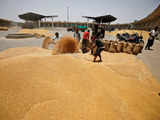
Govt aims 60% of wheat area under climate resilient varieties in rabi season amid El Nino fear
The Indian government aims to bring 60% of the total wheat area under climate-resistant varieties for the upcoming rabi sowing season, due to strong El Nino conditions. Despite the challenges of climate change, the Ministry of Agriculture has set a target of achieving a record wheat output of 114 million tonnes in the 2023-24 season.
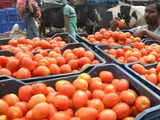
Maharastra farmers destroying tomato crops as prices fall from Rs 200 a month ago to just Rs 2-3 per kg
Tomato prices in Maharashtra, India, have dropped dramatically from Rs 200 per kilogram to as low as Rs 3-5 per kilogram, causing significant losses for tomato growers. The sudden decline in prices was due to an unexpectedly high tomato yield. Many farmers are abandoning their crops or destroying their produce as they cannot recover their investment. The situation is dire in various regions, with prices plunging in markets.

India permits 75,000 tonnes non-basmati white rice exports to UAE
India has lifted the ban on the export of non-basmati white rice and allowed the export of 75,000 tonnes to the UAE. The export was previously prohibited to control domestic prices and ensure food security. The exports will be permitted through National Cooperative Exports Limited, based on government permission and requests from other countries for their food security needs. India had previously allowed rice exports to Singapore and Benin is one of the major importers of non-basmati rice from India.
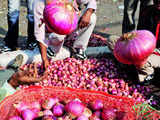
40% duty on certain onion varieties may be rolled back
The government on August 19 imposed a 40% duty on all types of onions exported from India to tame strong bullish trend in onion prices. This caused a nearly 70% fall in onion exports, said market sources. Meanwhile, in a meeting held on Monday, traders from Nashik decided to continue their onion strike that started on September 20. This is not likely to affect the onion prices in the country.
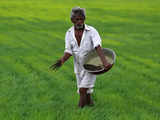
Indian Potash sees no Canada supply hit, hopes to extend deal
Canada is one of the key suppliers of potash to India and Indian companies last year signed a memorandum of understanding with Canpotex to buy up to 1.5 million metric tons of potash a year for 3 years, starting from 2023.
